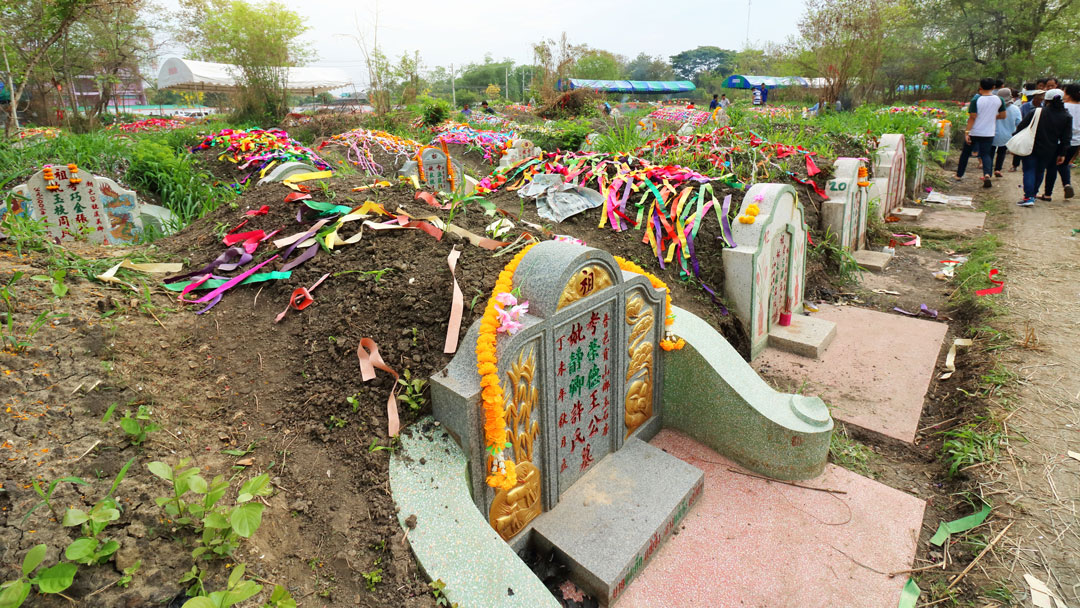Qingming is a three-day festival during which family members sweep their ancestors’ tombs. It is also known as the Pure Brightness Festival or Tomb-Sweeping Day. It takes place during the spring when temperatures begin to rise and rainfall increases. This agricultural festival celebrates plowing and sowing in the spring; it is a time for paying respect to the dead, enjoying a spring outing, and many other activities.
Background
Legend has it that the Qingming Festival was originally held to commemorate a loyal man named Jie Zitui who lived in the Spring and Autumn period (770 to 476 BC). Jie cut a piece of meat from his own leg in order to save his hungry lord, who was forced to go into exile when the crown was in jeopardy. When the lord reclaimed his power nineteen years later, he did not honor Jie Zitui, this loyal man who sacrificed a part of his own body, but later felt ashamed and decided to reward him. However, Jie was living in a mountain with his mother. In order to find Jie, the lord ordered that the mountain should be set on fire. Later Jie was found dead with his mother. In order to honor Jie, the lord declared the day Jie died as Hanshi (Cold Food) Festival—a day when only cold food could be eaten.
The next year, when the lord went to the mountain to pay tribute to Jie, he found willows revived, so he gave instructions that the day after Hanshi Festival was to be Qingming Festival. As time passed, the two festivals were combined into one.
Festival Customs
Qingming Festival is a time of many different activities. The main ones are tomb sweeping, taking a spring outing, and flying kites. Over the years, some of the customs have been set aside, such as wearing willow branches on the head and playing on swings. The day is a combination of sadness and happiness.
Tomb Sweeping
Tomb sweeping is regarded as the most important custom in the Qingming Festival. Cleaning the tomb and paying respect to the dead person with offerings are the two most important parts of honoring a deceased relative. Weeds around the tomb are cleared away and fresh soil is added to show care for the dead. The dead person’s favorite food and wine are brought, along with paper resembling money. This is all burned in the hope that the deceased is not lacking food and money.
Today, with cremation becoming more popular, the custom has been simplified in cities. Only flowers are presented to the dead relatives and revolutionary martyrs. No matter how respect is shown, prayers for the deceased are expressed.
Spring Outing
Not only is it a day for commemorating the dead, but it’s also a time for people to enjoy themselves. Spring is in the air and nature takes on a new look, as trees turn green, flowers bloom, and the sun shines brightly. It is a fine time to get out and appreciate the beautiful scenery. This custom can be traced back to the Tang Dynasty (AD 618 to 907) and has been followed by each dynasty through today. Spring outings not only add joy to life but also promote a healthy body and mind.
Flying Kites
Flying kites is an activity favored by many people during the Qingming Festival. Kites are flown not only during the day but also in the evening. Little lanterns are tied to the kite or to the string that holds the kite. And when the kite is flying in the sky, the lanterns look like twinkling stars that add unique scenery as the day turns to night. It is said that cutting the string while the kite is in the sky and letting it fly free will bring good luck and that diseases can be eliminated.
The Qingming Festival is a day of fun, sacrifice, celebration, and remembrance to honor the dead and rejoice for the future.










